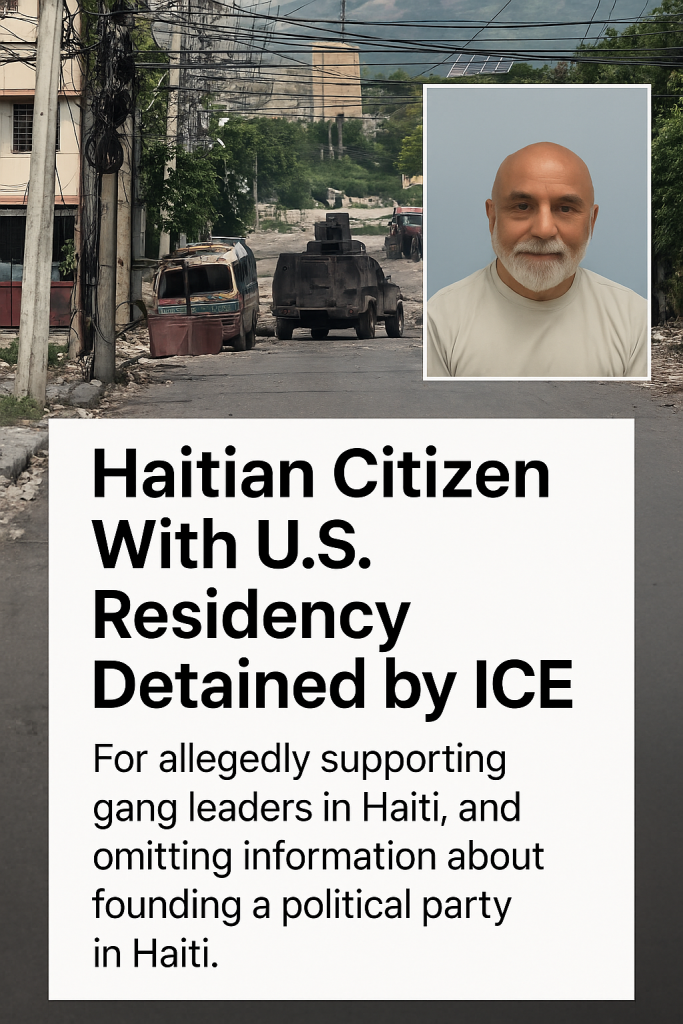An individual holding U.S. permanent residency from Haiti was recently detained by Immigration and Customs Enforcement (ICE) on allegations of supporting Haitian gang leaders and failing to disclose critical information regarding the founding of a political party in Haiti. The case has sparked discussions about national security, immigration enforcement, and the influence of foreign political dynamics within the United States.
The detainee, whose identity has been withheld due to ongoing legal proceedings, is accused of maintaining connections with prominent gang figures in Haiti. Haitian gangs have increasingly gained notoriety for their involvement in violent crime, extortion, and political intimidation, destabilizing the Caribbean nation for years. U.S. authorities assert that the individual’s support contributed to the operational capacity of these criminal organizations, raising red flags for homeland security officials.
In addition to the gang-related accusations, ICE officials claim the detainee deliberately omitted information about founding a political party in Haiti when applying for permanent residency. Immigration law requires full disclosure of all affiliations, particularly those that could pose security risks or involve political extremism. Failing to report the establishment of a political group, especially one linked to controversial or destabilizing elements, can lead to serious immigration consequences, including detention and removal proceedings.
Legal experts note that political affiliations in the applicant’s home country, especially those connected to groups with ties to criminal behavior or violence, are scrutinized heavily by U.S. immigration authorities. This case underscores the challenges of vetting immigrants whose backgrounds intersect complex political and criminal landscapes abroad.
Though the U.S. government has not released detailed evidence publicly, officials emphasize the importance of vigilance in preventing foreign criminal influence on American soil. The detention aligns with broader efforts by ICE to crack down on individuals suspected of facilitating transnational criminal activities, including those affecting diaspora communities.
Advocates for immigrant rights have expressed concerns about the potential for overreach and the impact on Haitian-American communities, many of whom already face significant scrutiny amid political turmoil in Haiti. Supporters argue the accused individual deserves due process and caution against conflating political involvement with criminal conduct without transparent evidence.
Meanwhile, the Haitian government continues to grapple with ongoing gang violence and political instability, which have led to heightened international attention and calls for reform. The intersection between diaspora politics and criminal networks remains complex, with agents on both sides working to influence outcomes locally and abroad.
The detainee’s case is expected to proceed through immigration court, where further details may emerge regarding the extent of their activities and potential involvement with illicit operations. Homeland security agencies maintain that such actions are vital to protecting U.S. interests and public safety while ensuring legal and procedural fairness.
This incident serves as a stark reminder of the multifaceted challenges in immigration enforcement, especially as global political tensions increasingly intersect with domestic security concerns in the United States.



